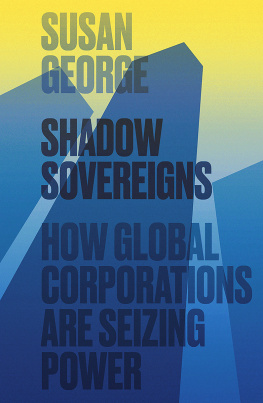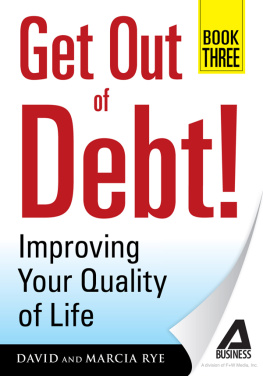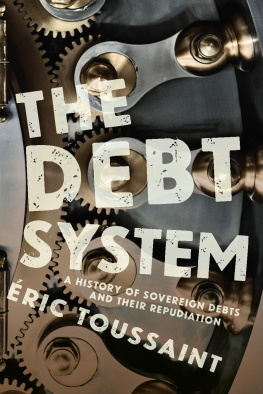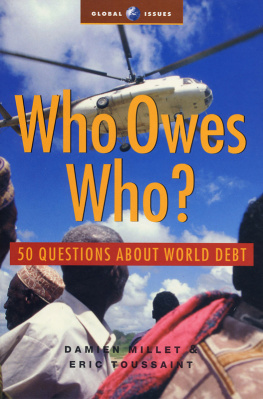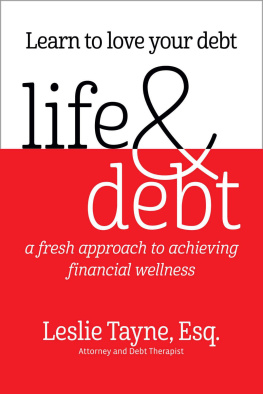First published 1992 by Westview Press
Published 2019 by Routledge
52 Vanderbilt Avenue, New York, NY 10017
2 Park Square, Milton Park, Abingdon, Oxon OX14 4RN
Routledge is an imprint of the Taylor & Francis Group, an informa business
Copyright 1992 Susan George
All rights reserved. No part of this book may be reprinted or reproduced or utilised in any formor by any electronic, mechanical, or other means, now known or hereafter invented, including photocopying and recording, or in any information storage or retrieval system, without permission in writing from the publishers.
Notice:
Product or corporate names may be trademarks or registered trademarks, and are used only for identification and explanation without intent to infringe.
Library of Congress Cataloging-in-Publication Data A CIP catalog record for this book is available from the Ubrary of Congress.
Typeset in Stone by Stanford DTP, Milton Keynes
Printed and bound in the United Kingdom by Billing and Sons Ltd, Worcester
ISBN 13: 978-0-367-29116-7 (hbk)
The Debt Boomerang is a project of the Transnational Institute, Amsterdam, undertaken in cooperation with the Institute for Policy Studies, Washington DC.
Research and documentation were supplied by Peter Andreas, Humberto Campodonico, John Cavanagh, John Denham, Cameron Duncan, Claudio Jedlicki, David Pedersen, Dan Smith, Indra Wahab and Susan George.
About the Transnational Institute (TNI)
The Transnational Institute was founded in 19734. Its brief is to address the fundamental disparities between the rich and poor peoples and nations of the world, investigate their causes and develop alternatives for their remedy. TNI is decentralised, with headquarters in Amsterdam and Fellows living and working in many countries on several continents. TNI Fellows aspire to be public scholars or scholar-activists, carrying out research of the highest calibre and presenting it in formats accessible and relevant to a broad audience. TNI Fellows participate in a variety of public or media events and popular movements. Because Institute Fellows do not take a purely academic approach to their subjects, TNI is not just another research institute but an important intellectual resource for people throughout the world who seek positive social and political change.
Funding for the Institutes work has come from a wide range of sources including private foundations, European public development cooperation agencies, churches, non-governmental organisations, trade unions and individual donors. TNI Directors and Fellows do not receive salaries but rather grants to encourage intellectual work they could not otherwise undertake. Larger projects often call upon scholar-assodates outside the Fellowship itself. Fellows meetings -designed as festivals of ideas - bring TNI Fellows and guests together twice yearly in the Amsterdam centre, where conferences and symposia on a variety of topics are also held throughout the year.
As of mid-1991, the Director of TNI is Dan Smith (UK citizen and resident); Susan George (US citizen, French resident) and Pedro Vilanova (Spanish citizen and resident) serve as Associate Directors. The Executive Secretary, resident in Amsterdam, is Laurian Zwart
For further information concerning the Institutes activities and programme, please contact Laurian Zwart, Executive Secretary, TNI, Paulus Potterstraat 20, 1071 DA, Amsterdam, Netherlands; tel. (3120) 662 66 08 or fax (3120) 675 71 76.
The Debt Boomerang shows how:
Deforestation in the South - a major contributor to global warming - is directly linked to the debt crisis. A countrys debt burden strongly correlates with both the pace and the extent of its tropical forest destruction. Bio-diversity, the source of our future foods and medicines, is disappearing along with the forests.
Cocaine will continue to flood Northern markets - with all its attendant sodai problems - so long as deeply indebted Latin American countries are dependent on drug dollars for survival and while tens of thousands of people displaced by the International Monetary Funds economic austerity programmes cannot find a livelihood in the legal economy.
Yon are paying enormous disguised subsidies to commercial banks, which have taken at least US$73 billion from the public purse since 1987, while receiving huge payments from the third world. Yet the debtors have received almost no relief and in 1991 were 61 per cent more in debt than they were in 1982.
Jobs have been lost in Northern industries by the hundreds of thousands, and farms have failed because the debtor countries can no longer purchase Northern products and must send every spare dollar to the banks.
Immigration, legal or illegal, can only swell so long as millions seek to escape the dire economic consequences of austerity in their own countries. Solving the debt crisis is the vital initial step to making their lives worth living at home.
Conflict and war, with the ever-present danger of spillovers into our own daily lives, are the constant companions of debt, now doubtless the single largest contributing factor to global instability.
The Debt Boomerang also points the way towards the future we must build. Northern citizens can work together, and with their counterparts in the South, to force governments and international agencies to end the havoc wreaked everywhere by the debt crisis. It belongs at the top of the political agenda.
The Transnational Institute gratefully acknowledges the support of FINNIDA, the Finnish International Development Agency, whose grant has made The Debt Boomerang project possible. We wish to express our deep gratitude to Mikko Pyhl, formerly of FINNIDA, now with the United Nations Environment Programme in Nairobi, for his overall interest in the Institutes work and his particular commitment to this project; thanks also to Ms Anu Prnnen-Landtman, Programme Officer at FINNIDA. The Finnish grant also supports other institute activities including the work of several third world TNI Fellows.


